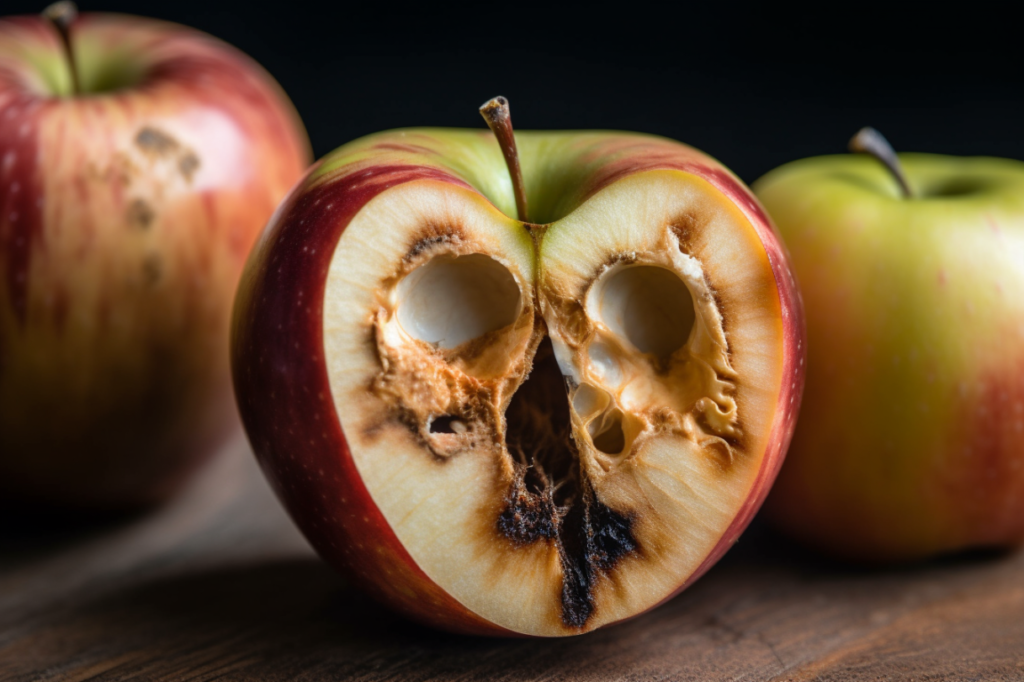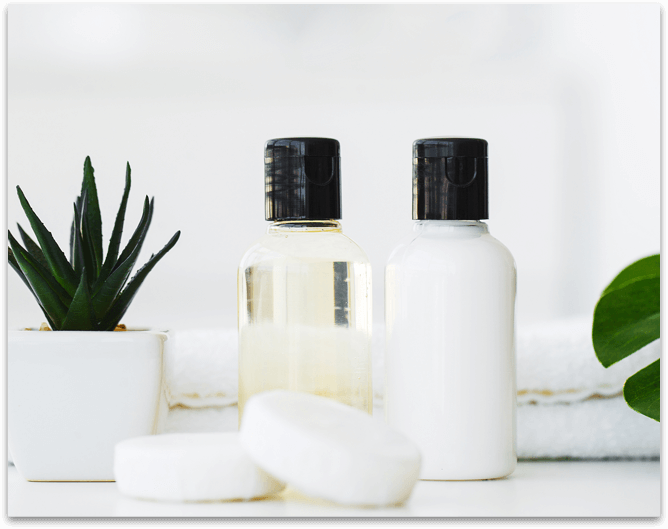Hey there, everyone! As a dental hygienist, I’ve heard countless questions and misconceptions about tooth decay. It’s one of the most common issues we see in our patients, yet many people still don’t fully understand what it is or how to prevent it.
So let me set the record straight: tooth decay is caused by bacteria that produce acid in your mouth when you consume sugary or starchy foods and drinks. This acid attacks your teeth and breaks down their protective enamel layer, leading to cavities (little holes) in your teeth.
But fear not – by taking simple steps like brushing twice a day with fluoride toothpaste, flossing daily, and limiting sugary snacks and drinks, you can keep your pearly whites healthy for years to come!
In this article, we’ll dive deeper into the truth about tooth decay and explore some surprising facts that may change the way you think about oral health.
Understanding The Causes Of Tooth Decay
Welcome to today’s discussion on the truth about tooth decay. As a dental hygienist, I have seen many cases of tooth decay in my patients over the years.
Understanding the causes of tooth decay is essential for maintaining good oral health and preventing future problems.
One significant cause of tooth decay is poor dietary habits. Consuming sugary foods and drinks can lead to the buildup of plaque, which contains harmful bacteria that erode enamel and cause cavities. It’s important to limit your intake of sugary snacks and beverages and choose healthier options like fruits, vegetables, and water instead.
Another way to prevent tooth decay is through fluoride treatments. Fluoride helps strengthen teeth by remineralizing areas that have been weakened by acid attacks from plaque bacteria. Many cities add fluoride to their drinking water, but if you don’t live in an area with fluoridated water, ask your dentist about fluoride treatments during your regular checkups.
By understanding these causes of tooth decay and taking steps to prevent it through proper diet and fluoride treatments, you can maintain healthy teeth for years to come. Remember to visit your dentist regularly for cleanings and checkups as well!
The Role Of Bacteria In Oral Health
Understanding the Causes of Tooth Decay has shed light on how poor oral hygiene and sugary diets can lead to dental caries. Now, let’s delve deeper into the Role of Bacteria in Oral Health.
Bacteria are not always bad news for your teeth; there is a delicate bacteria balance that exists in our mouths called the oral microbiome diversity. This biodiversity refers to having various types of bacteria living harmoniously, which helps maintain optimal health conditions in our mouth.
When this equilibrium is disrupted by factors such as antibiotics or poor diet choices, harmful bacteria can thrive, leading to tooth decay.
The good news is we can take steps to promote healthy bacterial growth and protect our teeth from decay. Avoiding excessive sugar intake and maintaining proper dental hygiene habits like brushing twice daily with fluoride toothpaste and flossing at least once a day helps keep the oral microbiome diverse and balanced. Additionally, incorporating probiotics into one’s diet may also aid in promoting healthy bacterial growth within the mouth.
- Picture an army fighting off unwanted invaders while protecting their territory.
- Imagine a garden full of various flowers and plants, each contributing unique benefits to create a beautiful ecosystem.
- Envision different animal species coexisting peacefully in a jungle.
- Think about a puzzle where every piece fits perfectly together to form an ideal picture.
- Visualize a symphony where each instrument plays its part immaculately to produce perfect harmony.
As dental hygienists, it’s essential for us to educate patients on how they can improve their oral microbiome diversity through wise dietary decisions and effective oral care routines. By taking these preventive measures, you’ll be doing yourself (and your teeth) a favor!
How To Prevent Tooth Decay
Tooth decay is a prevalent dental issue that affects people of all ages. However, it is entirely preventable if proper measures are taken.
To prevent tooth decay, you need to start with dietary recommendations. A balanced diet plays an essential role in maintaining good oral health. Limiting sugary and acidic foods and drinks can help reduce your risk of developing cavities. Opt for snacks such as fruits, vegetables, or cheese instead of candy or chips. Furthermore, drinking plenty of water helps wash away food particles and bacteria from the mouth.
Another effective way to prevent tooth decay is through fluoride use. Fluoride strengthens the enamel on your teeth and reduces the likelihood of tooth decay. Toothpaste and mouthwash containing fluoride can provide additional protection against cavities. Additionally, tap water contains fluoride which makes it an excellent choice for hydration.
By following these simple guidelines, you can significantly reduce your chances of getting tooth decay. Remember to maintain a healthy diet while incorporating fluoride into your daily routine by using fluoridated products or drinking tap water regularly.
With consistent care and attention to your oral hygiene habits, you’ll be able to enjoy strong teeth and a beautiful smile for years to come!
The Importance Of Regular Dental Check-Ups
As we discussed earlier, preventing tooth decay is a crucial part of maintaining good oral health. However, it’s not enough to just brush your teeth twice a day and use mouthwash regularly. Regular dental check-ups are equally important in catching problems early on before they develop into more significant issues.
One major benefit of regular dental visits is that your dentist can identify any areas where you may be particularly prone to developing cavities or gum disease. This way, preventative measures can be taken such as applying sealants or recommending changes to your oral hygiene routine.
Additionally, professional cleanings during these appointments help remove plaque build-up that cannot be removed by brushing alone.
Another essential aspect of maintaining good oral health is diet. The foods and drinks we consume have an impact on our teeth and gums. Eating sugary or acidic foods can erode enamel and contribute to the development of cavities over time. On the other hand, incorporating healthy foods like fruits and vegetables rich in vitamins and minerals helps strengthen teeth and gums.
Incorporating daily flossing into your oral hygiene routine also has numerous benefits for preventing tooth decay and gum disease. Flossing removes food particles from between teeth that brushing alone cannot reach. It also stimulates blood flow in the gums, promoting their overall health.
Remember, prevention is always easier than treatment when it comes to oral healthcare!
Surprising Facts About Oral Health
As a dental hygienist, I often educate my patients about the importance of oral hygiene habits. Brushing twice daily and flossing once a day can prevent plaque buildup on teeth which leads to tooth decay.
However, many people are surprised to learn that their diet also plays a significant role in maintaining good oral health. Frequent consumption of sugary foods and drinks feeds the harmful bacteria in our mouths, leading to acid production that erodes tooth enamel. Limiting these items and opting for healthier options such as fruits, vegetables, and water can reduce the risk of cavities. Additionally, acidic foods like citrus fruits and vinegar-based dressings should be consumed in moderation as they can weaken tooth enamel over time.
It’s important to note that even those with impeccable oral hygiene habits can still develop cavities if their diet is poor. Maintaining a well-balanced diet along with regular brushing and flossing practices will help keep your smile healthy and cavity-free.
Remember, prevention is key when it comes to avoiding the pain and inconvenience of tooth decay.
Frequently Asked Questions
How Does Tooth Decay Affect Overall Health?
Untreated tooth decay can have a significant impact on your immune system and increase the risk of chronic diseases.
As dental hygienists, we understand that oral health is directly linked to overall health, so it’s crucial to address any signs of tooth decay promptly.
When left untreated, bacteria from cavities can enter the bloodstream and weaken the body’s natural defenses against infections.
Additionally, research has shown a connection between gum disease (a common result of untreated tooth decay) and conditions such as heart disease, diabetes, and stroke.
Maintaining good oral hygiene habits like brushing twice daily and visiting your dentist regularly can help prevent these harmful effects on your health.
Can Cavities Heal Themselves Without Dental Intervention?
As a dental hygienist, I often get asked if cavities can heal themselves without intervention.
While our teeth have the ability to self-heal and remineralize to an extent, it is not always enough to fully reverse the damage caused by tooth decay.
Incorporating proper oral hygiene practices, such as brushing twice daily with fluoride toothpaste and flossing regularly, along with a balanced diet can aid in this natural healing process.
However, for moderate to severe cases of tooth decay, seeking professional dental treatment is essential in preventing further damage and preserving overall oral health.
Is It Possible To Reverse Tooth Decay?
To reverse tooth decay, it’s important to make dietary changes and implement remineralization techniques.
As a dental hygienist, I recommend incorporating foods rich in calcium, vitamin D, and phosphorus into your diet to strengthen teeth.
Additionally, using fluoride toothpaste and mouthwash can help prevent further decay by promoting remineralization of the enamel.
It’s also crucial to limit sugary and acidic foods and drinks that contribute to erosion of enamel.
While reversing tooth decay is not always possible without dental intervention, these steps can certainly improve oral health and potentially slow down the progression of cavities.
Are There Any Natural Remedies For Preventing Or Treating Tooth Decay?
As a dental hygienist, I often get asked if there are any natural remedies for preventing or treating tooth decay.
One popular technique is oil pulling, where you swish coconut or sesame oil in your mouth for 20 minutes daily to reduce bacteria and plaque buildup. While it may provide some benefits, it’s important to note that this method should not replace regular brushing and flossing.
Another controversial topic surrounding tooth decay prevention is fluoride use. While some studies suggest that excessive fluoride intake can lead to health issues, the American Dental Association still recommends using products containing fluoride to prevent cavities.
It’s best to maintain good oral hygiene practices and consult with your dentist about what preventative measures work best for you.
How Much Sugar Is Too Much For Healthy Teeth?
As a dental hygienist, I often get asked about sugar intake recommendations. The truth is, there’s no set number of grams that works for everyone – it depends on factors like age and activity level.
However, we do know that too much sugar can have a negative impact on oral health by contributing to tooth decay. It’s also important to be mindful of the acidity in foods and drinks, as they can wear away at enamel over time.
A balanced diet with limited added sugars and regular brushing and flossing are key components of good oral hygiene habits.
Conclusion
In conclusion, as a dental hygienist, I cannot stress enough how important it is to take care of your teeth and prevent tooth decay. Not only can it lead to painful cavities and infections, but it can also have negative impacts on your overall health.
It’s important to remember that while some minor cases of tooth decay may be able to heal themselves with proper oral hygiene practices, most cases require dental intervention.
However, there are ways to reverse early stages of tooth decay through remineralization and fluoride treatments. Additionally, natural remedies such as oil pulling and xylitol can aid in preventing further decay.
Limiting sugar intake is also crucial for maintaining healthy teeth. The American Heart Association recommends no more than 6 teaspoons (24 grams) of added sugars per day for women and 9 teaspoons (36 grams) for men.
By following these guidelines and regularly visiting your dentist, you can keep your smile bright and healthy for years to come.



